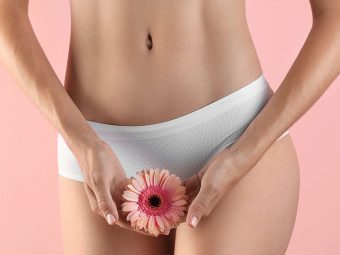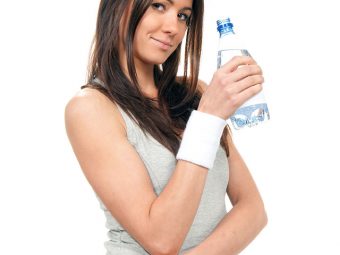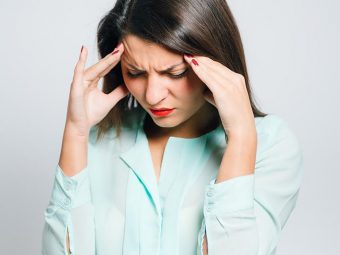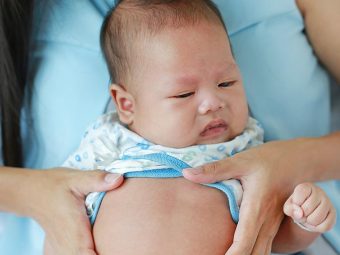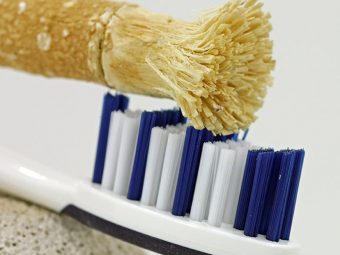What To Do After Eating A Lot Of Oily Food – 7 Ways To Recover From The Effects
Smart tips to ensure you don't always have to resist delicious albeit oily treats.
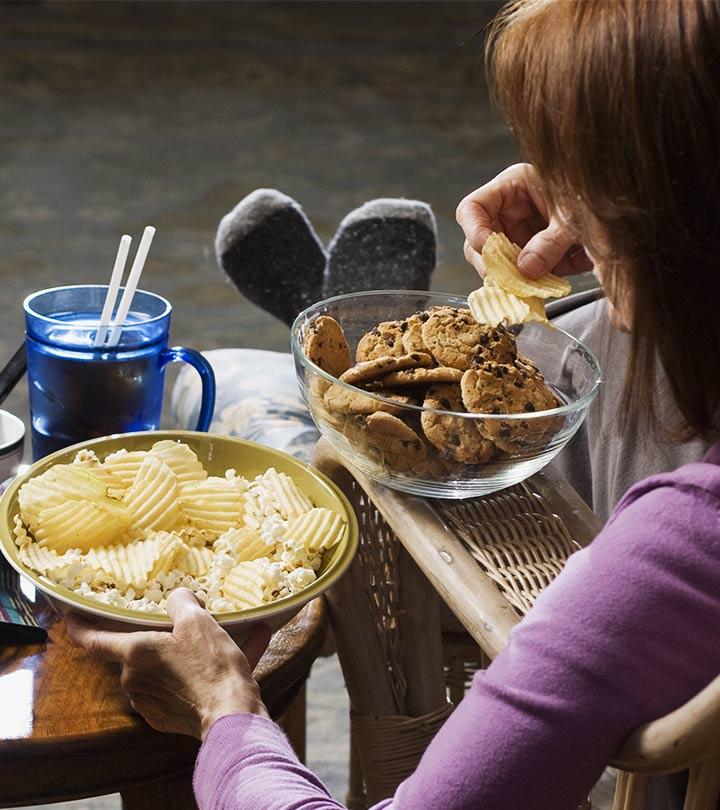
Sometimes, we all give in to food cravings and consume oily food. While it is ok to do so, we must also focus on what to do after eating oily food. Remember that oily foods are high in calories, trans fats, and saturated fats. These increase the risk of obesity and spike cholesterol levels, increase the risk of diabetes type 2 and heart disease, and elevate blood pressure (1). Thankfully, it’s not too late. You can take certain steps to nullify the effects of consuming too much oily food. Keep reading to know what to do after eating oily food and get back to your healthy lifestyle.
In This Article
What To Do After Eating Oily Food
1. Drink Lukewarm Water
Drinking lukewarm water after consuming oily food helps soothe and activate your digestive system. Water acts as a carrier for nutrients and waste products (2). Drinking hot water helps break down the nutrients into their digestible form. If you do not drink enough water, the small intestine will absorb water from food for digestion, leading to dehydration and constipation.
2. Have A Detox Drink
Detox drinks help flush out toxins that get accumulated in your system after consuming oily foods. Some researchers suggest that detoxification programs or detox drinks help release toxins and aid weight loss. However, these studies are not conclusive (3). A study on Korean women showed that drinking lemon juice or following a lemon detox diet reduced body fat and improved insulin resistance (4). You can try out these DIY detox drink recipes to help you feel better after consuming oily foods.
3. Take A Walk
Walking for 30 minutes after a heavy meal helps improve digestion. It promotes better stomach motility, aiding digestion, and may also help you lose weight (5), (6). Hence, go for a slow walk for 30 minutes after eating greasy food to relax your body.
4. Plan Your Next Meal
Planning your meals in advance helps you avoid consuming junk and oily foods on an impulse. Do not skip breakfast. Have a healthy and wholesome breakfast to keep you charged for the day. Include veggies and whole grains in your diet, keep yourself hydrated by drinking adequate water and juices, and have a light dinner.
5. Take Probiotics
Regular intake of probiotics helps balances digestive health and improves gut flora and immunity (7). You can have a cup of yogurt or curd. Add tempeh or nato to your diet plan to strengthen your gut after consuming oily food.
6. Consume More Fruits And Vegetables
Consuming fruits and vegetables helps provide enough vitamins, minerals, and fiber to your body to carry out various processes (8). Eating oily foods that are devoid of fiber and essential micronutrients and high in saturated and trans fats may lead to constipation (9). Have a bowl of fruits with nuts and seeds as a refreshing mid-morning snack. Start your meal with a bowl of salad and fresh vegetables to continue the supply of essential nutrients to your body.
7. Sleep Well
Sleeping helps boost your mood, gets rid of hangovers, and relaxes your mind, body, and soul. Hence, relax and sleep well and avoid emotional eating.
What You Should Not Do After Eating Oily Food
1. Avoid Eating Cold Foods
Eating cold foods, such as ice cream, after consuming oily food has adverse effects on the liver, stomach, and intestines. Oily food is difficult to digest. Following it up with cold food makes digestion difficult, and you might experience bloating and indigestion. Hence, avoid consuming cold foods after heavy meals.
2. Do Not Go To Bed Immediately After Eating
Never go straight to bed after a heavy meal. Always give a gap of 2-3 hours between dinner and bedtime. Sleeping immediately after a meal makes food difficult to digest, causing bloating and enhancing fat deposition.
Now that you know what to do after eating oily food, you can take the required steps and precautions to help avoid its possible side effects. Eat mindfully with portion control and following the basic tips mentioned above is the key to staying fit and healthy after eating oily food. While you can satisfy your oily food and snacks craving once in a while, it is best to have a balanced, wholesome diet most other days.
Frequently Asked Questions
Can we drink milk after eating oily food?
Many people prefer to drink warm milk after eating oily food, which works. However, warm water is the best option as it helps you digest heavy food and reduce the heavy feeling of oily items.
Does tea help with oily food?
Yes. Tea may help with oily food. It may offer relief from the greasy feeling after a heavy meal.
9 sources
- Fuhrman, Joel. “The Hidden Dangers of Fast and Processed Food.” American journal of lifestyle medicine 12,5 375-381.
https://www.ncbi.nlm.nih.gov/pmc/articles/PMC6146358/ - Jéquier, Eric, and Florence Constant. “Water as an essential nutrient: the physiological basis of hydration.” European journal of clinical nutrition2 (2010): 115-123.
https://www.nature.com/articles/ejcn2009111 - Klein, A. V., and H. Kiat. “Detox diets for toxin elimination and weight management: a critical review of the evidence.” Journal of human nutrition and dietetics6 (2015): 675-686.
https://onlinelibrary.wiley.com/doi/full/10.1111/jhn.12286 - Kim, Mi Joung et al. “Lemon detox diet reduced body fat, insulin resistance, and serum hs-CRP level without hematological changes in overweight Korean women.” Nutrition research (New York, N.Y.) 35,5 (2015): 409-20.
https://pubmed.ncbi.nlm.nih.gov/25912765/ - Kim, Yeon Soo et al. “Aerobic exercise improves gastrointestinal motility in psychiatric inpatients.” World journal of gastroenterology 20,30 (2014): 10577-84.
https://www.ncbi.nlm.nih.gov/pmc/articles/PMC4130869/ - Hijikata, Yasuyo, and Seika Yamada. “Walking just after a meal seems to be more effective for weight loss than waiting for one hour to walk after a meal.” International journal of general medicine 4 (2011): 447-50.
https://www.ncbi.nlm.nih.gov/pmc/articles/PMC3119587/ - Brown, Amy C, and Ana Valiere. “Probiotics and medical nutrition therapy.” Nutrition in clinical care : an official publication of Tufts University 7,2 (2004): 56-68.
https://pubmed.ncbi.nlm.nih.gov/15481739/ - Slavin, Joanne L, and Beate Lloyd. “Health benefits of fruits and vegetables.” Advances in nutrition (Bethesda, Md.) 3,4 506-16.
https://www.ncbi.nlm.nih.gov/pmc/articles/PMC3649719/ - Taba Taba Vakili, S et al. “Association of high dietary saturated fat intake and uncontrolled diabetes with constipation: evidence from the National Health and Nutrition Examination Survey.” Neurogastroenterology and motility : the official journal of the European Gastrointestinal Motility Society 27,10 (2015): 1389-97.
https://www.ncbi.nlm.nih.gov/pmc/articles/PMC4584183/




